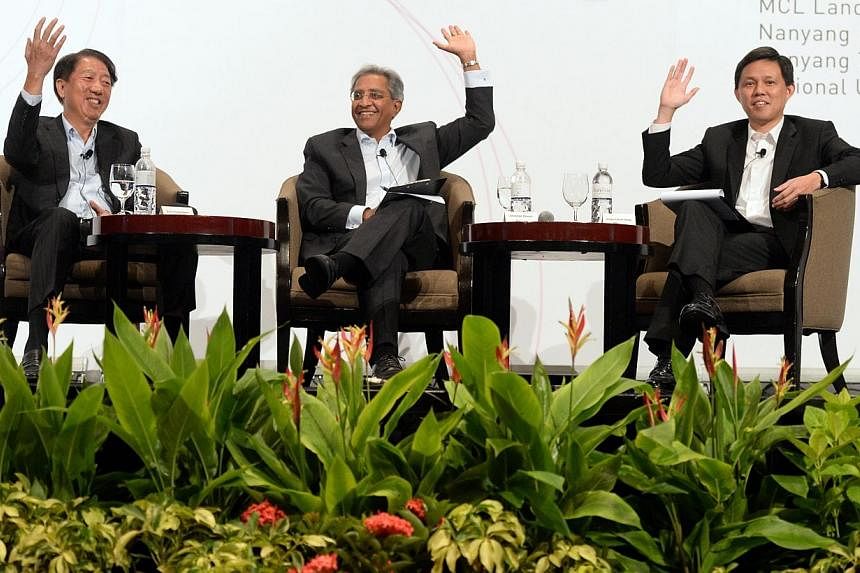SINGAPORE - Before separating in 1965, Singapore and Malaysia had discussed the possibility of forming a confederation instead.
The proposed arrangement would have given Singapore the powers it previously possessed in its years of self-government from 1959 to 1963.
Its defence and external relations, however, would be under the charge of Kuala Lumpur.
Institute of Policy Studies director Janadas Devan said Singapore "came close to getting one country, two systems before we stumbled on separation" and became an independent state.
Mr Janadas related this episode on Monday in his opening remarks at the institute's annual Singapore Perspectives conference.
He cited as sources the memoirs of former prime minister Lee Kuan Yew, as well as recorded interviews given by Mr E.W. Barker and Dr Goh Keng Swee, two late Cabinet ministers who steered Singapore in its early days.
Exactly 50 years ago, as of Monday, Singapore's Cabinet had debated a proposal paper by Mr Lee that Singapore be in a confederation with Malaysia.
Mr Lee had privately spoken about it with Malaysian Prime Minister Tunku Abdul Rahman one month earlier in December 1964, the tail end of a tense year in which Singapore and Kuala Lumpur had clashed repeatedly, and race riots in Singapore had killed 36 people and injured 560.
But the confederation proposal did not take off.
Singapore and Kuala Lumpur could not agree on the terms of the confederation, and the British "got wind of the talks and scuttled everything", said Mr Janadas.
Had the British not stepped in, there is "a reasonable chance" that Singapore and Kuala Lumpur may have agreed to form a confederation, he said.
The reason: there was a group within the Singapore leadership that believed the island should be part of Malaysia while Malaysia's leaders were uncomfortable with the alternative of an independent Singapore, said Mr Janadas.
On hindsight, he said, "it is probably fortunate the confederation idea collapsed".
It would have given Singapore a "one country, two systems" decades before Chinese leader Deng Xiaoping proposed it for Hong Kong in the 1980s, he noted.
The confederation arrangement would have been "between two peoples who had perhaps less in common than Hongkongers have with mainland Chinese today - despite which, see what difficulty the Special Administrative Region has had", said Mr Janadas.
"Why do I recall this history? To remind ourselves there was nothing inevitable about our founding," he told an audience of 1,000 people, mainly from the public sector, schools and civil society.
For this reason, Singapore's existence as a sovereign state should not be taken for granted, he added.


